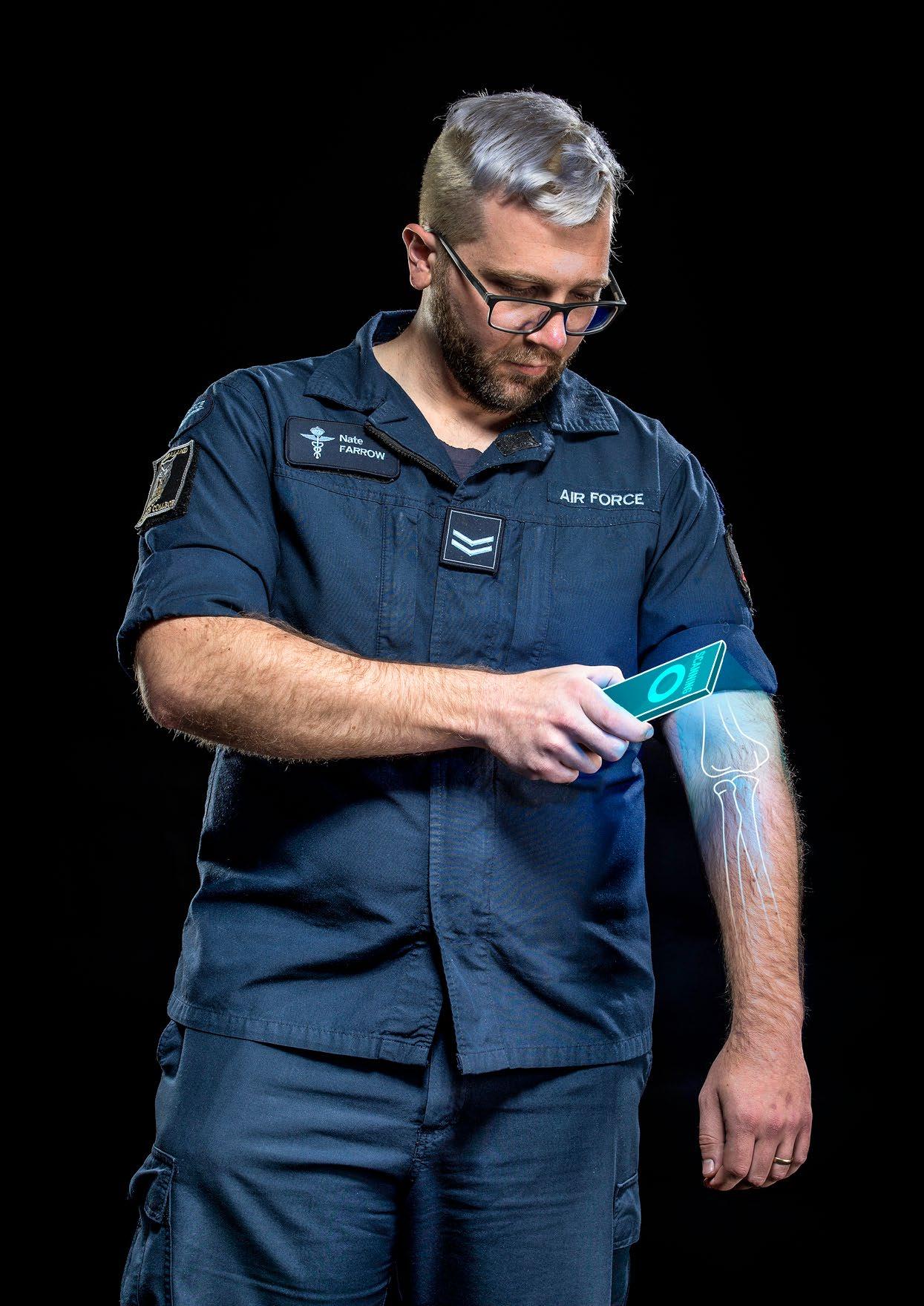
2 minute read
HIGH TECH HEALING
The human body probably won’t change so much in 20 years, but new types of weapons to cause it damage will, medic Corporal Nate Farrow says.
And that means medical techniques and equipment will also have to evolve.
Advertisement
It’s impossible to know what future conflicts may arise and whether New Zealand will be involved. They may take the form of country versus country or extremist groups rising up.
Where nations are taking an interest in chemical and biological weapons, that is something that needs to be kept an eye on, Corporal (CPL) Farrow said.
“There are also weapons that could be developed like pressure-wave and sonic weapons. So I’m not sure how that will affect our medicine in the future, but it’s something that we will need to consider,” he said.
“I envision there will be a greater degree of specialisation alongside an increased connectivity with technology. “So things like improved telemedicine, which is the ability for a doctor to video call into a scene to see what’s going on, but still have the medic be their hands, so to speak,” he said.
“Technologies like augmented reality will come into play a lot – so the ability to lay a digital interface over what you’re seeing so you could see exactly where blood vessels are expected to be running and be able to monitor patient vitals in real time.”
There are some interesting developments around artificial intelligence (AI) diagnostics as well. There could come a time when a medic could look at a patient through a camera and be able to diagnose a problem based off changes of colours that AI sees through the lens, he said.
“As far as stitching goes – in the past super glue was used as a bonding agent and there has been some progress in developing new instant binders like that, so I think as far as in an emergency care situation, we’ll see a lot more of future superglues.”
Regardless of the improvements in treatments to combat evolving weaponry, the people who choose a career in military medicine will need the same character traits as those working today, CPL Farrow said.
“I think the base skills of young medics in the future aren’t going to change too much. They’ll still need a strong drive, a willingness to learn and a keen mind for problem solving and adapting.”










